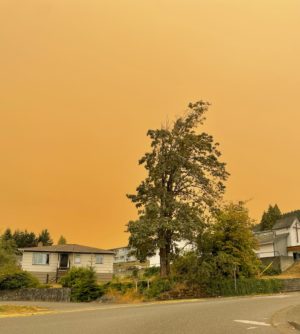 A new global health report suggests that every year from 2020 to 2024 about 1,400 deaths in Canada were associated with wildfire smoke pollution as climate change takes an increasing toll on the country’s health. The Lancet Countdown on health and climate change, compiled by more than 100 experts worldwide, is considered one of the most comprehensive looks at the subject. Between 2020 and 2024, the report found the wildfire smoke pollution in Canada had increased on average by 172 per cent compared to what it had been between 2003 and 2012. …The report’s findings suggest heat exposure last year resulted in the loss of more than 40 million potential labour hours, 136 per cent more than average in the 1990s. That’s an estimated $1.4 billion in lost income. …The report suggests access to affordable, off-grid, renewable electricity is “essential to tackle the major sources of greenhouse gas emissions and reduce climate risk.”
A new global health report suggests that every year from 2020 to 2024 about 1,400 deaths in Canada were associated with wildfire smoke pollution as climate change takes an increasing toll on the country’s health. The Lancet Countdown on health and climate change, compiled by more than 100 experts worldwide, is considered one of the most comprehensive looks at the subject. Between 2020 and 2024, the report found the wildfire smoke pollution in Canada had increased on average by 172 per cent compared to what it had been between 2003 and 2012. …The report’s findings suggest heat exposure last year resulted in the loss of more than 40 million potential labour hours, 136 per cent more than average in the 1990s. That’s an estimated $1.4 billion in lost income. …The report suggests access to affordable, off-grid, renewable electricity is “essential to tackle the major sources of greenhouse gas emissions and reduce climate risk.”

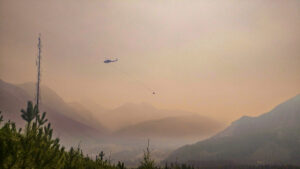 Smoke from record-breaking Canadian wildfires in 2023 caused an estimated 5,400 acute deaths and about 82,100 premature deaths worldwide, a new study shows. The study
Smoke from record-breaking Canadian wildfires in 2023 caused an estimated 5,400 acute deaths and about 82,100 premature deaths worldwide, a new study shows. The study 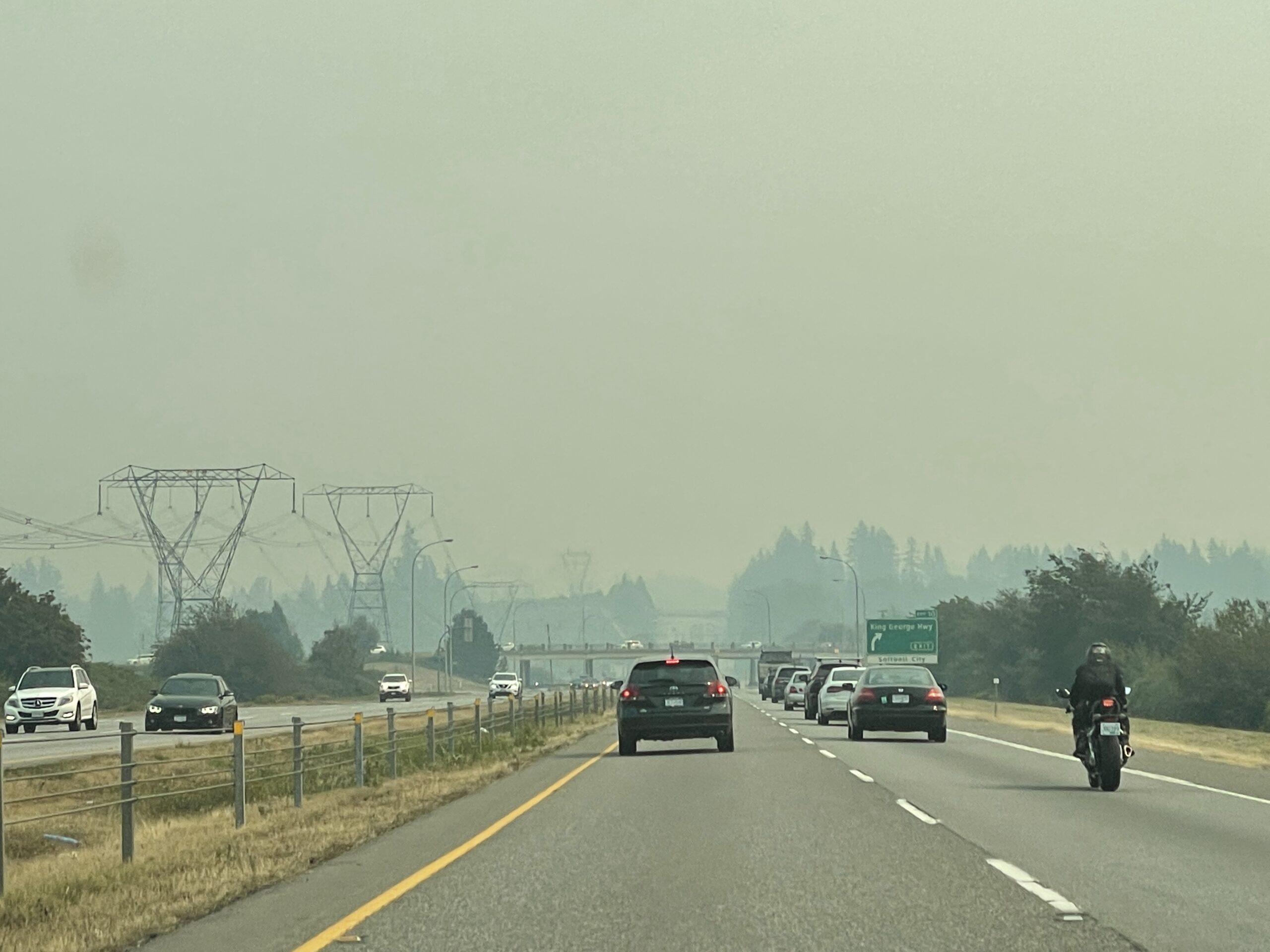 It’s hard not to forget the 2023 Canadian wildfire season, when more than 16 million hectares of forest were lost, thousands were displaced and smoke suffocated cities across both Canada and the U.S. And it turns out Canada experienced its worst air pollution levels that year since 1998, according to a new report released today by the University of Chicago’s Air Quality Life Index (AQLI). At the same time, the report found that pollution levels didn’t change much for the rest of the world in 2023. If those levels continued for a person’s lifetime, the average Canadian would lose roughly two years of their life expectancy, according to the report. Efforts have been made around the world, including in Canada, to curb harmful emissions of fine particulate matter with a diameter of less than 2.5 micrometres, also known as PM 2.5. But wildfires are reversing those advances — with serious health consequences.
It’s hard not to forget the 2023 Canadian wildfire season, when more than 16 million hectares of forest were lost, thousands were displaced and smoke suffocated cities across both Canada and the U.S. And it turns out Canada experienced its worst air pollution levels that year since 1998, according to a new report released today by the University of Chicago’s Air Quality Life Index (AQLI). At the same time, the report found that pollution levels didn’t change much for the rest of the world in 2023. If those levels continued for a person’s lifetime, the average Canadian would lose roughly two years of their life expectancy, according to the report. Efforts have been made around the world, including in Canada, to curb harmful emissions of fine particulate matter with a diameter of less than 2.5 micrometres, also known as PM 2.5. But wildfires are reversing those advances — with serious health consequences. See these stories and more in the October newsletter: As we mark Manufacturing Month and Ergonomics Month, we’re highlighting ways employers can help keep workers safe.
See these stories and more in the October newsletter: As we mark Manufacturing Month and Ergonomics Month, we’re highlighting ways employers can help keep workers safe. 
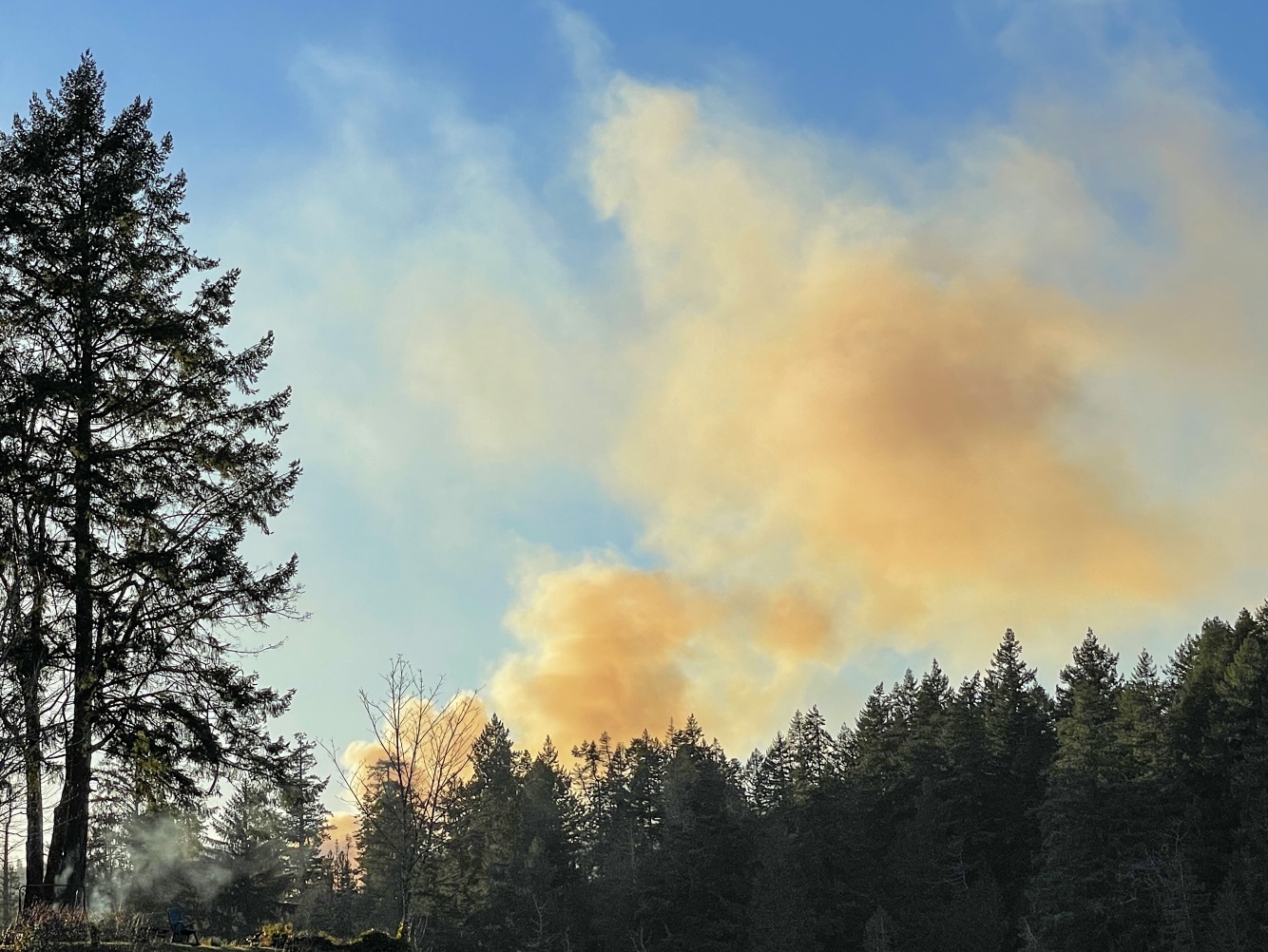 There’s been a cool edge to the air the last week or so. You may have noticed something else in the air, too — smoke. Unfortunately for those with health conditions like respiratory problems and heart disease, and for those who don’t want to develop them, two jurisdictions in the Cowichan Valley still allow at least some backyard burning, and wood burning appliances are still common everywhere in the Cowichan Valley Regional District. The Town of Ladysmith, City of Duncan and Town of Lake Cowichan have completely banned backyard burning. The Municipality of North Cowichan has cut back on what it allows, but there are still large swaths of territory within its boundaries where lighting up a burn pile is still allowed. … Cowichan’s transfer stations accept yard waste free of charge, so people can take their debris there instead of lighting it up. So consider your alternatives, and the people around you before you burn. Smoke travels.
There’s been a cool edge to the air the last week or so. You may have noticed something else in the air, too — smoke. Unfortunately for those with health conditions like respiratory problems and heart disease, and for those who don’t want to develop them, two jurisdictions in the Cowichan Valley still allow at least some backyard burning, and wood burning appliances are still common everywhere in the Cowichan Valley Regional District. The Town of Ladysmith, City of Duncan and Town of Lake Cowichan have completely banned backyard burning. The Municipality of North Cowichan has cut back on what it allows, but there are still large swaths of territory within its boundaries where lighting up a burn pile is still allowed. … Cowichan’s transfer stations accept yard waste free of charge, so people can take their debris there instead of lighting it up. So consider your alternatives, and the people around you before you burn. Smoke travels.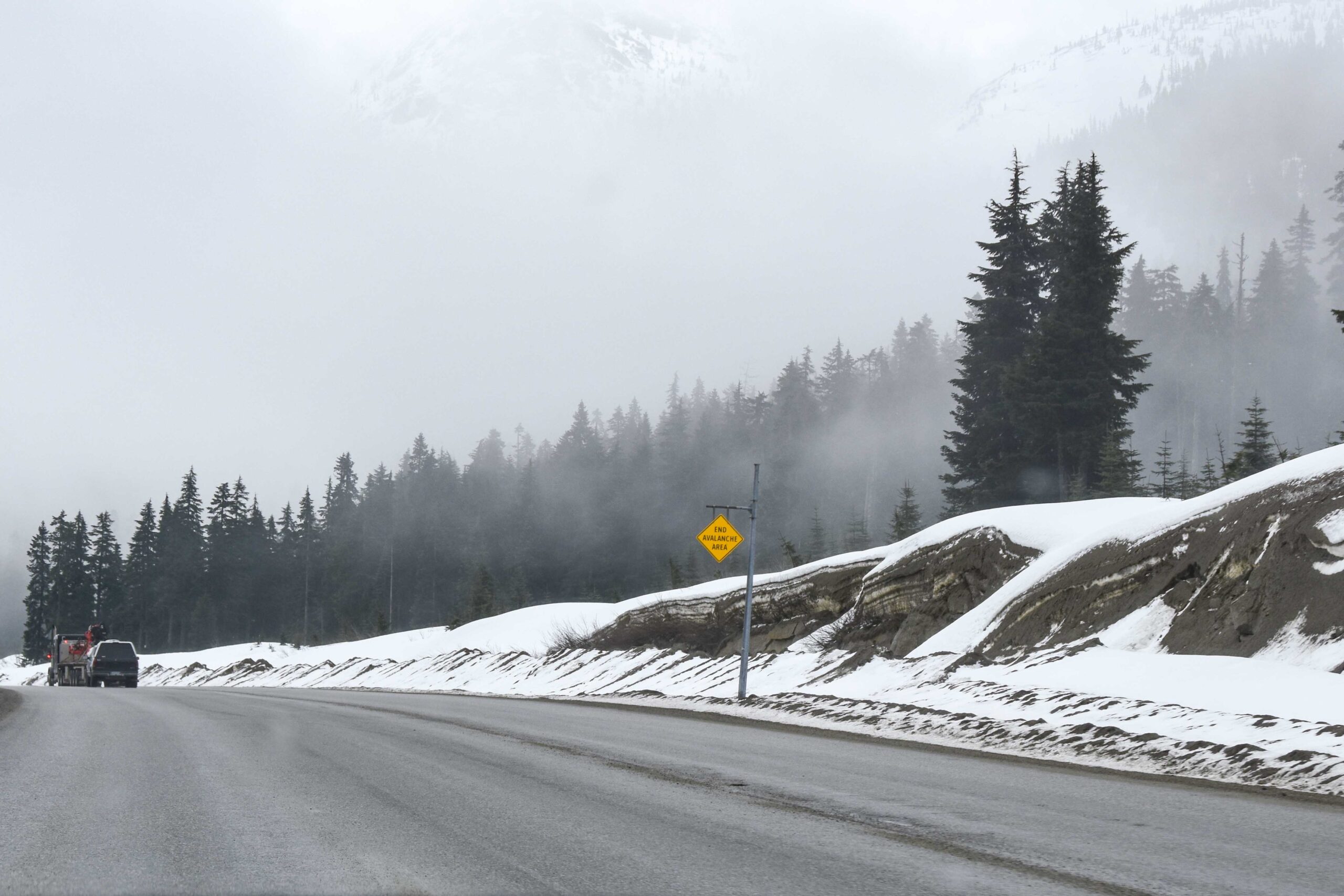 Does your workplace safety program include steps to reduce the risks your drivers face when driving on the job in winter? It needs to. Your safety responsibilities don’t change with the seasons. But you do need to address the additional driving hazards created by winter road and weather conditions. Some of the biggest hazards for log haulers include:
Does your workplace safety program include steps to reduce the risks your drivers face when driving on the job in winter? It needs to. Your safety responsibilities don’t change with the seasons. But you do need to address the additional driving hazards created by winter road and weather conditions. Some of the biggest hazards for log haulers include: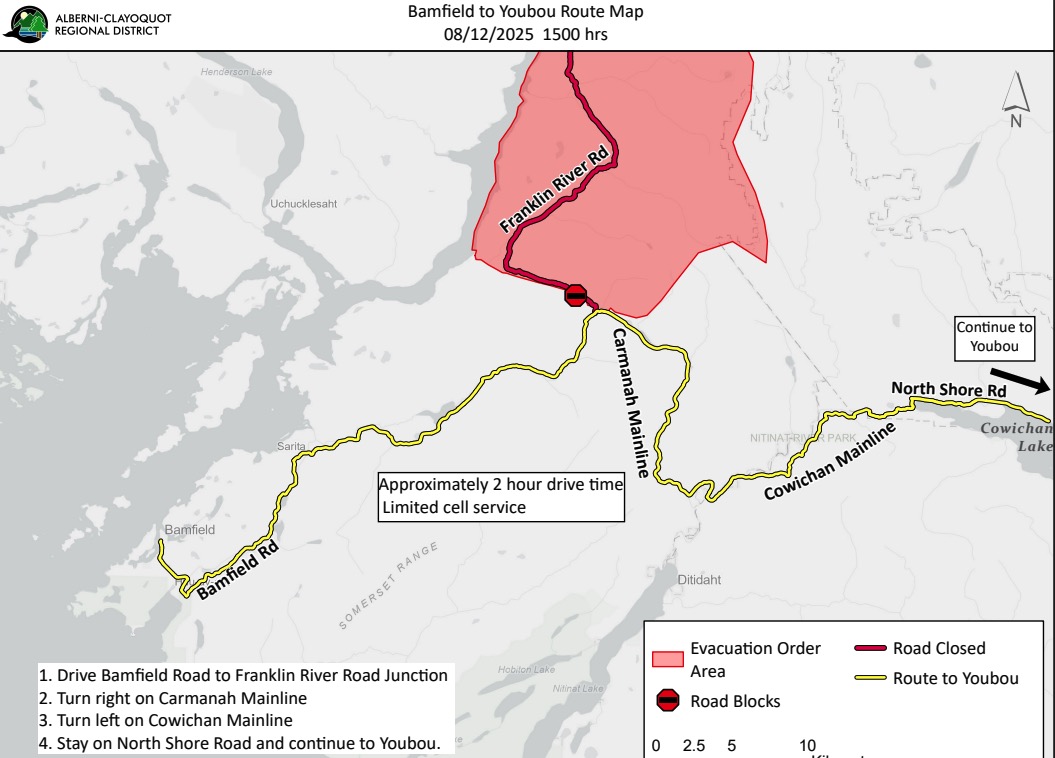 Since Aug. 11, the Bamfield Main Road has been closed. …When the Mount Underwood wildfire broke out, that road had to be closed because of a blaze raging nearby. …Bamfield-area residents have to travel more than four hours to get to Port Alberni. …Another point of frustration for the people on the other side of the closure is the existence of a logging road owned by Mosaic Forest Management, a section of that road goes around the Bamfield Main Road closure. Harrison said she and a small group of other people drove the road to check it out. …”The Youbou Road is 100 times worse than that little 20-minute bypass road,” claimed resident Sherry Harrison. …The ministry said the road owned by Mosaic is private and public use is up to the discretion of the company, but added those logging roads were not built and are not maintained for public use.
Since Aug. 11, the Bamfield Main Road has been closed. …When the Mount Underwood wildfire broke out, that road had to be closed because of a blaze raging nearby. …Bamfield-area residents have to travel more than four hours to get to Port Alberni. …Another point of frustration for the people on the other side of the closure is the existence of a logging road owned by Mosaic Forest Management, a section of that road goes around the Bamfield Main Road closure. Harrison said she and a small group of other people drove the road to check it out. …”The Youbou Road is 100 times worse than that little 20-minute bypass road,” claimed resident Sherry Harrison. …The ministry said the road owned by Mosaic is private and public use is up to the discretion of the company, but added those logging roads were not built and are not maintained for public use.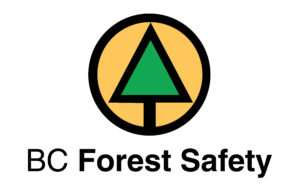 REVELSTOKE, BC — A BC forestry worker was fatally injured while on the job last week, an industry safety group said Tuesday. “A skidder operator was fatally injured when their skidder rolled down a steep slope in an area north of Revelstoke,” the BC Forest Safety Council said of the Sept. 16 incident. “WorkSafeBC and the Coroners Service are currently investigating this incident.” It’s the fifth harvesting fatality in 2025 and BC Forestry said details are still to be determined. Contributing factors to the incident are not available during an ongoing investigation. The BC Forest Safety Council said they have several safety points to be considered as the process unfolds. Those include a thorough assessment before work begins to prepare operators for steep slope logging operations. …Maintain safety buffers by not operating on the steepest possible slopes. This helps operators recover when surprised by an unexpected event.
REVELSTOKE, BC — A BC forestry worker was fatally injured while on the job last week, an industry safety group said Tuesday. “A skidder operator was fatally injured when their skidder rolled down a steep slope in an area north of Revelstoke,” the BC Forest Safety Council said of the Sept. 16 incident. “WorkSafeBC and the Coroners Service are currently investigating this incident.” It’s the fifth harvesting fatality in 2025 and BC Forestry said details are still to be determined. Contributing factors to the incident are not available during an ongoing investigation. The BC Forest Safety Council said they have several safety points to be considered as the process unfolds. Those include a thorough assessment before work begins to prepare operators for steep slope logging operations. …Maintain safety buffers by not operating on the steepest possible slopes. This helps operators recover when surprised by an unexpected event. WorkSafeBC will be holding a virtual public hearing on
WorkSafeBC will be holding a virtual public hearing on  There are fewer injuries and deaths occurring on B.C. construction sites compared to previous years and decades, although much work remains to ensure worker safety. “Struck by’s,” “falls from” and “trips and slips” are among the most common incidents on job sites, and major events like Kelowna’s deadly crane collapse in 2021 highlight the risks that accompany modern construction. Work-related death claims in the construction sector totalled 31 in 2020, 29 in 2021, 54 in 2022, 39 in 2023 and 25 in 2024, according to data provided by WorkSafeBC. …Dave Baspaly, president of the Council of Construction Associations (COCA), which represents all major construction associations in BC said… the industry’s improved safety record is a result of more training, stricter enforcement of WorkSafeBC rules, and a culture of compliance where non-adherence is not tolerated. He emphasizes that proactive measures, like rigorous inspections and coordinated site management, are making construction sites safer.
There are fewer injuries and deaths occurring on B.C. construction sites compared to previous years and decades, although much work remains to ensure worker safety. “Struck by’s,” “falls from” and “trips and slips” are among the most common incidents on job sites, and major events like Kelowna’s deadly crane collapse in 2021 highlight the risks that accompany modern construction. Work-related death claims in the construction sector totalled 31 in 2020, 29 in 2021, 54 in 2022, 39 in 2023 and 25 in 2024, according to data provided by WorkSafeBC. …Dave Baspaly, president of the Council of Construction Associations (COCA), which represents all major construction associations in BC said… the industry’s improved safety record is a result of more training, stricter enforcement of WorkSafeBC rules, and a culture of compliance where non-adherence is not tolerated. He emphasizes that proactive measures, like rigorous inspections and coordinated site management, are making construction sites safer. There are fresh calls for an alternative route to the west coast of Vancouver Island after it emerged the main route between Port Alberni and Bamfield, B.C., is closed indefinitely. …The only alternative is a logging road detour through Youbou in the Cowichan Valley. …Ditidaht First Nation Chief Councillor Judi Thomas said she hopes the province will go further and redesignate the forest service industrial road as a provincial road and fast-track investment. But the Ministry of Transportation and Transit said, “there is mixed ownership of the road(s) in this area, but all are private industrial roads, and the ministry has no plans to take over the ownership”. …The province says it’s working with Mosaic Forest Management, which is responsible for maintaining 15 kilometres of Bamfield Road, to beef up maintenance on the detour road . …D’Arcy Henderson, Mosaic’s chief operating officer, said it was working with stakeholders on maintaining that detour route.
There are fresh calls for an alternative route to the west coast of Vancouver Island after it emerged the main route between Port Alberni and Bamfield, B.C., is closed indefinitely. …The only alternative is a logging road detour through Youbou in the Cowichan Valley. …Ditidaht First Nation Chief Councillor Judi Thomas said she hopes the province will go further and redesignate the forest service industrial road as a provincial road and fast-track investment. But the Ministry of Transportation and Transit said, “there is mixed ownership of the road(s) in this area, but all are private industrial roads, and the ministry has no plans to take over the ownership”. …The province says it’s working with Mosaic Forest Management, which is responsible for maintaining 15 kilometres of Bamfield Road, to beef up maintenance on the detour road . …D’Arcy Henderson, Mosaic’s chief operating officer, said it was working with stakeholders on maintaining that detour route. In this edition of Forest Safety News you’ll find these stories and more:
In this edition of Forest Safety News you’ll find these stories and more: The Province of B.C. is lending its expertise to Mosaic Forest Management as it develops plans to reopen the Bamfield Main Road, sections of which were rendered unsafe due to the Mt. Underwood wildfire. “We recognize the importance of Bamfield Road to the Huu‑ay‑aht First Nation and area residents,” said Mike Farnworth, Minister of Transportation and Transit. “There is substantial work necessary … to reopen Bamfield Road. Ensuring the safety of the travelling public is the top priority, and the Province will continue to support to Mosaic throughout this process.” Initial engineering assessments have determined a section of the Bamfield Road managed by Mosaic is unsafe for all traffic, prompting Mosaic to close the route with a section of the road being defined as a No Work Zone by BC Wildfire Services. Falling rocks, dangerous trees and a fire-damaged slope are presenting exceptionally challenging conditions, and there is no timeline for reopening the road in its current configuration.
The Province of B.C. is lending its expertise to Mosaic Forest Management as it develops plans to reopen the Bamfield Main Road, sections of which were rendered unsafe due to the Mt. Underwood wildfire. “We recognize the importance of Bamfield Road to the Huu‑ay‑aht First Nation and area residents,” said Mike Farnworth, Minister of Transportation and Transit. “There is substantial work necessary … to reopen Bamfield Road. Ensuring the safety of the travelling public is the top priority, and the Province will continue to support to Mosaic throughout this process.” Initial engineering assessments have determined a section of the Bamfield Road managed by Mosaic is unsafe for all traffic, prompting Mosaic to close the route with a section of the road being defined as a No Work Zone by BC Wildfire Services. Falling rocks, dangerous trees and a fire-damaged slope are presenting exceptionally challenging conditions, and there is no timeline for reopening the road in its current configuration.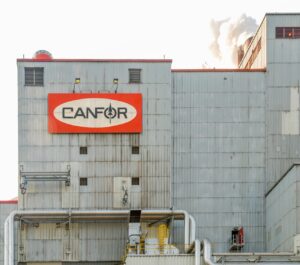 PRINCE GEORGE, BC — Canfor Pulp has been fined after a worker seriously injured their hand in an unguarded piece of machinery. WorkSafeBC issued the $489,104 penalty on July 10 following an inspection at the company’s Northwood Pulp Mill in April. According to the inspection report, a worker was injured on the fifth floor by a hydraulic cylinder that cycles every 64 seconds, “dropping rapidly down” into a metal box. …The agency determined the firm failed to ensure its machinery and equipment was fitted with adequate safeguards to protect workers from hazardous points of operation. …Canfor spokesperson Mina Laudan said a contract worker sustained a hand injury in the incident. “We deeply regret that a worker was injured at our site. It is our responsibility to provide a safe working environment,” said Laudan. “Following the injury, we took immediate steps to safeguard the equipment that was involved in the incident.”
PRINCE GEORGE, BC — Canfor Pulp has been fined after a worker seriously injured their hand in an unguarded piece of machinery. WorkSafeBC issued the $489,104 penalty on July 10 following an inspection at the company’s Northwood Pulp Mill in April. According to the inspection report, a worker was injured on the fifth floor by a hydraulic cylinder that cycles every 64 seconds, “dropping rapidly down” into a metal box. …The agency determined the firm failed to ensure its machinery and equipment was fitted with adequate safeguards to protect workers from hazardous points of operation. …Canfor spokesperson Mina Laudan said a contract worker sustained a hand injury in the incident. “We deeply regret that a worker was injured at our site. It is our responsibility to provide a safe working environment,” said Laudan. “Following the injury, we took immediate steps to safeguard the equipment that was involved in the incident.”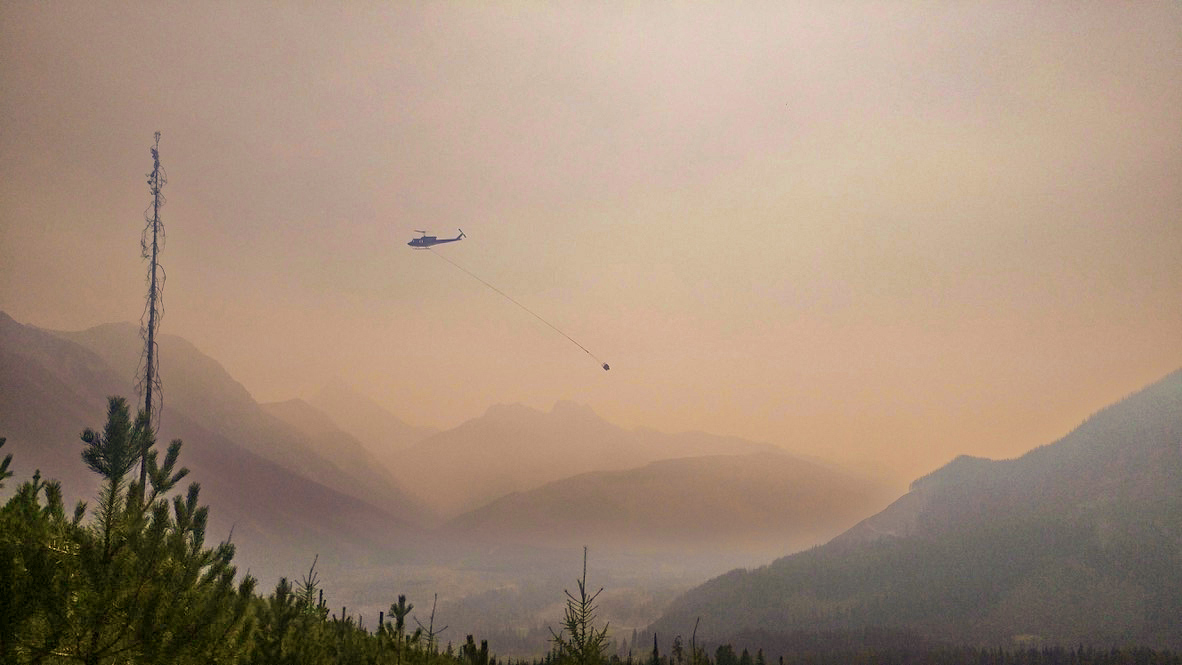 As Saskatchewan experiences one of its worst wildfire seasons on record, smoke continues to prompt air quality alerts for the public. …however, less than five per cent of personnel working the wildfires in Saskatchewan are wearing masks, and despite the health risks, that’s not likely to change any time soon. “Saskatchewan Public Safety Agency (SPSA) personnel have access to N95 masks if they wish to wear them on the fire line, but most choose to wear bandannas,” the SPSA wrote in an email to paNOW. Structural firefighters within urban centres are required to wear self-contained breathing apparatus (SCBA) to protect them from smoke inhalation and exposure to harmful airborne contaminants, but in Saskatchewan, using facial protection is voluntary for wildland firefighters, and there is no provincial protocol to use them. …N95 masks can help reduce exposure to fine particles, but don’t filter out harmful gases. Bandannas offer little to no protection.
As Saskatchewan experiences one of its worst wildfire seasons on record, smoke continues to prompt air quality alerts for the public. …however, less than five per cent of personnel working the wildfires in Saskatchewan are wearing masks, and despite the health risks, that’s not likely to change any time soon. “Saskatchewan Public Safety Agency (SPSA) personnel have access to N95 masks if they wish to wear them on the fire line, but most choose to wear bandannas,” the SPSA wrote in an email to paNOW. Structural firefighters within urban centres are required to wear self-contained breathing apparatus (SCBA) to protect them from smoke inhalation and exposure to harmful airborne contaminants, but in Saskatchewan, using facial protection is voluntary for wildland firefighters, and there is no provincial protocol to use them. …N95 masks can help reduce exposure to fine particles, but don’t filter out harmful gases. Bandannas offer little to no protection.
 Quebec’s workers’ safety board (CNESST) concluded that driving a forestry vehicle that had no seat belt or complete door contributed to the death of a worker in Saint-Côme-Linière, in the Chaudière-Appalaches region. The forestry worker died in a workplace accident on Jan. 6 while reversing a vehicle known as a skidder, according to the Commission des normes, de l’équité, de la santé et de la sécurité du travail (CNESST). During the maneuver, the vehicle backed up onto the stump of a felled tree, causing vibrations that ejected the worker from the cab. The man was crushed by the front wheel of the skidder. In its report, the CNESST concluded that “operating a skidder that is not equipped with seat belts or full doors violates section 21 of the Regulation respecting occupational health and safety in forest development work.”
Quebec’s workers’ safety board (CNESST) concluded that driving a forestry vehicle that had no seat belt or complete door contributed to the death of a worker in Saint-Côme-Linière, in the Chaudière-Appalaches region. The forestry worker died in a workplace accident on Jan. 6 while reversing a vehicle known as a skidder, according to the Commission des normes, de l’équité, de la santé et de la sécurité du travail (CNESST). During the maneuver, the vehicle backed up onto the stump of a felled tree, causing vibrations that ejected the worker from the cab. The man was crushed by the front wheel of the skidder. In its report, the CNESST concluded that “operating a skidder that is not equipped with seat belts or full doors violates section 21 of the Regulation respecting occupational health and safety in forest development work.”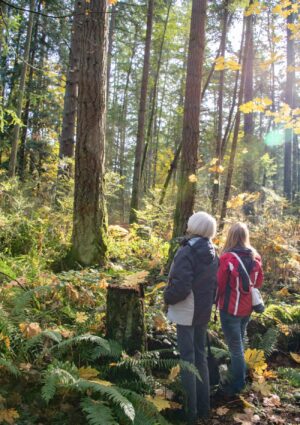 BOSTON — Susan Abookire, an internist and professor at Harvard Medical School, had a cure for all that ailed me. But I was going to have a difficult time getting her prescription filled at CVS. …I was participating, somewhat skeptically, in a forest bathing session Abookire was leading at Harvard’s Arnold Arboretum for seven young doctors. It’s part of resident training at Harvard-affiliated Brigham and Women’s Hospital, which is looking for ways to reduce stress and burnout within the profession. …Before I looked into forest bathing, I had feared it might be another goofy wellness fad like Gwyneth Paltrow’s jade eggs and Tucker Carlson’s genital tanning. But here was a doctor from a top medical school guiding some of the brightest young medical minds into the woods. …So I did what the doctor ordered. I introduced myself to a mushroom. [to access the full story a Washington Post subscription is required]
BOSTON — Susan Abookire, an internist and professor at Harvard Medical School, had a cure for all that ailed me. But I was going to have a difficult time getting her prescription filled at CVS. …I was participating, somewhat skeptically, in a forest bathing session Abookire was leading at Harvard’s Arnold Arboretum for seven young doctors. It’s part of resident training at Harvard-affiliated Brigham and Women’s Hospital, which is looking for ways to reduce stress and burnout within the profession. …Before I looked into forest bathing, I had feared it might be another goofy wellness fad like Gwyneth Paltrow’s jade eggs and Tucker Carlson’s genital tanning. But here was a doctor from a top medical school guiding some of the brightest young medical minds into the woods. …So I did what the doctor ordered. I introduced myself to a mushroom. [to access the full story a Washington Post subscription is required]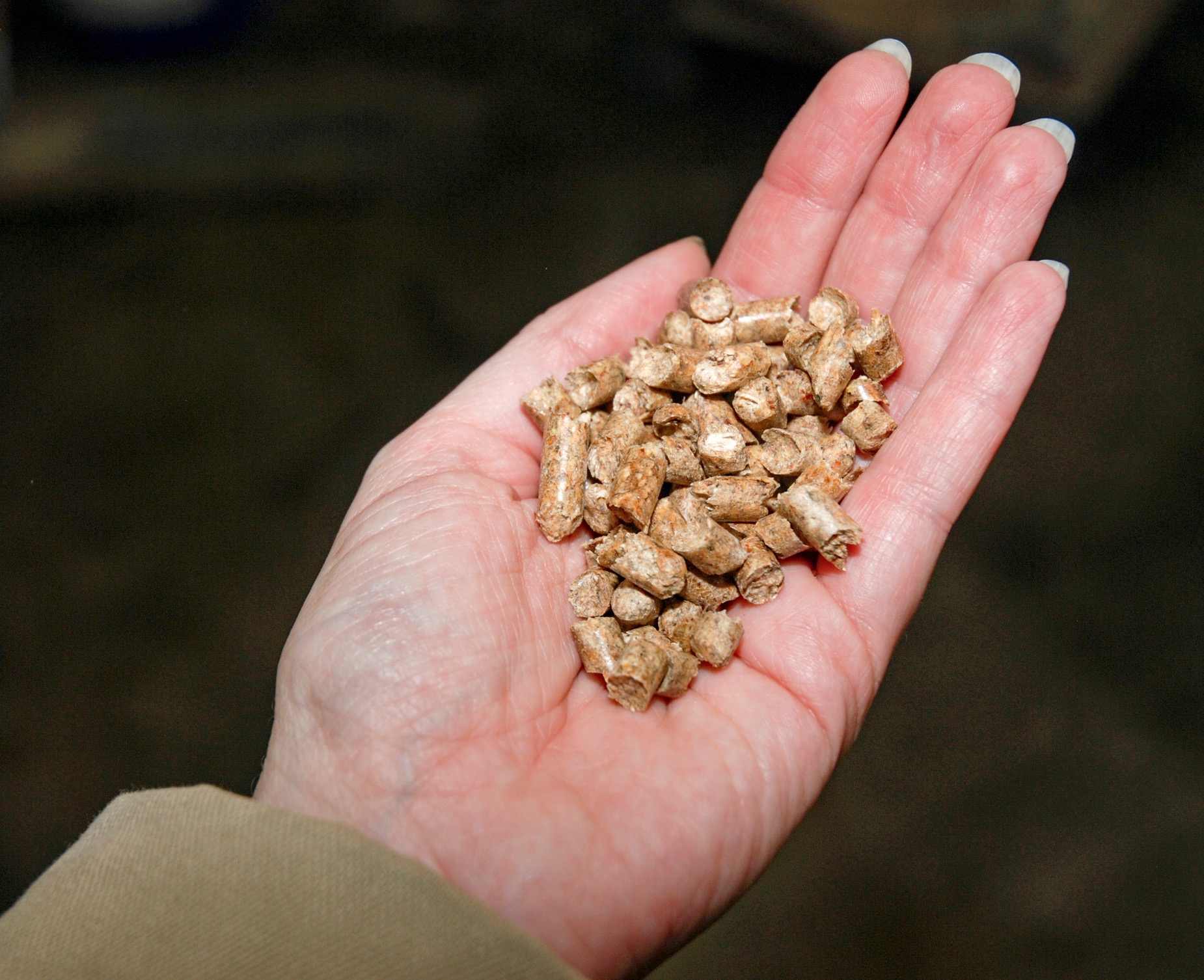 Ten lawsuits have been filed against Drax after diagnoses of asthma allegedly linked to its wood pellet fuel, it has been revealed. Current and former workers at the UK’s largest power station claim they have not been adequately protected against sustained exposure to wood dust, which can cause serious health problems including asthma, dermatitis and nasal cancer. Six compensation claims were settled out of court and four have trial dates in 2026, an investigation by Land and Climate Review found. A class action lawsuit was also filed against the company this month over health concerns in the US, representing 700 people who live near one of Drax’s wood pellet mills in Mississippi. The company is also being investigated by the UK Financial Conduct Authority over “historical statements” made about its wood pellet fuel.
Ten lawsuits have been filed against Drax after diagnoses of asthma allegedly linked to its wood pellet fuel, it has been revealed. Current and former workers at the UK’s largest power station claim they have not been adequately protected against sustained exposure to wood dust, which can cause serious health problems including asthma, dermatitis and nasal cancer. Six compensation claims were settled out of court and four have trial dates in 2026, an investigation by Land and Climate Review found. A class action lawsuit was also filed against the company this month over health concerns in the US, representing 700 people who live near one of Drax’s wood pellet mills in Mississippi. The company is also being investigated by the UK Financial Conduct Authority over “historical statements” made about its wood pellet fuel. 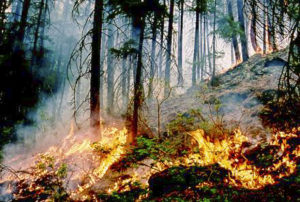 The US Forest Service will begin providing wildfire crews with masks to protect against smoke, reversing a decades-long policy banning protective gear after The NY Times spotlighted severe health impacts from smoke exposure. For decades, federal wildland firefighters were not given masks, even as researchers and labor groups warned of the long-term risks, the Times found. The Forest Service said masks could cause firefighters to overheat. …The agency now recommends masks for light use, though still bans it for arduous work. …FireRescue1 readers respond: “The policy is preposterous. No one makes such excuses for structural firefighting, where the heat load is much, much greater.” …“Heat stress is a short-term condition that can be immediately remedied by mandatory rest and work cycle adjustment. Lung issues usually last forever. A better respirator that is slimmer, lighter and maintainable needs to be created and the forest service needs to use them.
The US Forest Service will begin providing wildfire crews with masks to protect against smoke, reversing a decades-long policy banning protective gear after The NY Times spotlighted severe health impacts from smoke exposure. For decades, federal wildland firefighters were not given masks, even as researchers and labor groups warned of the long-term risks, the Times found. The Forest Service said masks could cause firefighters to overheat. …The agency now recommends masks for light use, though still bans it for arduous work. …FireRescue1 readers respond: “The policy is preposterous. No one makes such excuses for structural firefighting, where the heat load is much, much greater.” …“Heat stress is a short-term condition that can be immediately remedied by mandatory rest and work cycle adjustment. Lung issues usually last forever. A better respirator that is slimmer, lighter and maintainable needs to be created and the forest service needs to use them.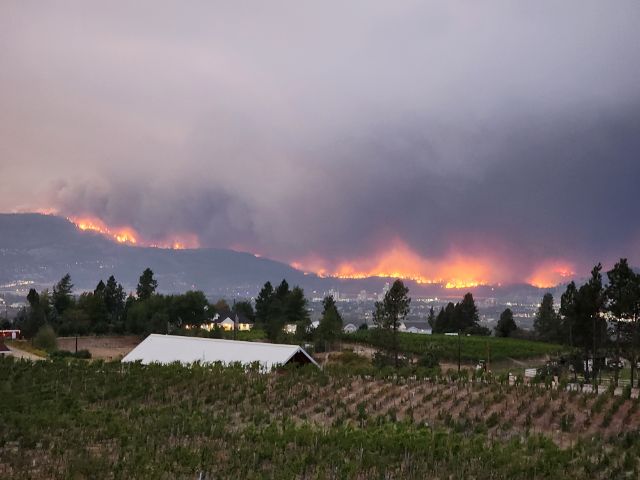 The smoke from the Los Angeles wildfires smelled like plastic and was so thick that it hid the ocean. Firefighters developed instant migraines, coughed up black goo and dropped to their knees, vomiting and dizzy. Seven months later, some are still jolted awake by wheezing fits in the middle of the night. …Fernando Allende, a 33-year-old whose U.S. Forest Service crew was among the first on the ground, figured he would bounce back from his nagging cough. But in June, while fighting another fire, he suddenly couldn’t breathe. …doctors discovered blood clots in his lungs and a mass pressing on his heart. They gave him a diagnosis usually seen in much older people: non-Hodgkin lymphoma, an aggressive cancer. It would be unthinkable for urban firefighters to [work] without wearing a mask. But people who fight wildfires spend weeks working in toxic smoke and ash wearing only a cloth bandanna, or nothing at all.
The smoke from the Los Angeles wildfires smelled like plastic and was so thick that it hid the ocean. Firefighters developed instant migraines, coughed up black goo and dropped to their knees, vomiting and dizzy. Seven months later, some are still jolted awake by wheezing fits in the middle of the night. …Fernando Allende, a 33-year-old whose U.S. Forest Service crew was among the first on the ground, figured he would bounce back from his nagging cough. But in June, while fighting another fire, he suddenly couldn’t breathe. …doctors discovered blood clots in his lungs and a mass pressing on his heart. They gave him a diagnosis usually seen in much older people: non-Hodgkin lymphoma, an aggressive cancer. It would be unthinkable for urban firefighters to [work] without wearing a mask. But people who fight wildfires spend weeks working in toxic smoke and ash wearing only a cloth bandanna, or nothing at all.
 A firefighter from Minnesota died Friday while helping the United States Forest Service with a controlled burn in Idaho, officials say. The Idaho Department of Lands (IDL) says Isabella Oscarson had been struck by a falling tree while assisting the U.S. Forest Service’s Tinker Bugs with a prescribed fire in the Nez Perce-Clearwater National Forests. She was evacuated from the scene and flown to a hospital in Grangeville, Idaho, where she later died. Oscarson was a seasonal employee with the IDL. “IDL extends its deepest sympathies to Isabella’s family and friends. This is a tragedy that hits the employees at Idaho Department of Lands and the broader wildland fire community extremely hard,” Dustin Miller, director of IDL, said. Idaho Gov. Brad Little ordered flags to be lowered to half-staff to honor Oscarson until the day following her memorial service.
A firefighter from Minnesota died Friday while helping the United States Forest Service with a controlled burn in Idaho, officials say. The Idaho Department of Lands (IDL) says Isabella Oscarson had been struck by a falling tree while assisting the U.S. Forest Service’s Tinker Bugs with a prescribed fire in the Nez Perce-Clearwater National Forests. She was evacuated from the scene and flown to a hospital in Grangeville, Idaho, where she later died. Oscarson was a seasonal employee with the IDL. “IDL extends its deepest sympathies to Isabella’s family and friends. This is a tragedy that hits the employees at Idaho Department of Lands and the broader wildland fire community extremely hard,” Dustin Miller, director of IDL, said. Idaho Gov. Brad Little ordered flags to be lowered to half-staff to honor Oscarson until the day following her memorial service.

 GLOSTER, Miss. — A group of Gloster residents has filed a federal lawsuit against Drax Biomass and its subsidiaries, alleging that the company’s Amite BioEnergy wood pellet facility in the town has unlawfully released massive amounts of toxic pollutants into their community, violating the federal Clean Air Act and Mississippi law. According to a statement from the law firm that filed the claim, Singleton Schreiber, the lawsuit seeks “injunctive relief, civil penalties, and damages for the harm plaintiffs have suffered, including diminished property values, and the loss of safe use and enjoyment of their homes.” Drax responded to inquiries with the following statement: “We are aware of the lawsuit filed in Mississippi. While we cannot comment on the details of ongoing legal matters, our commitment to the communities where we operate remains unchanged. We strive to be a good neighbor in our communities and to support their wellbeing and prosperity.”
GLOSTER, Miss. — A group of Gloster residents has filed a federal lawsuit against Drax Biomass and its subsidiaries, alleging that the company’s Amite BioEnergy wood pellet facility in the town has unlawfully released massive amounts of toxic pollutants into their community, violating the federal Clean Air Act and Mississippi law. According to a statement from the law firm that filed the claim, Singleton Schreiber, the lawsuit seeks “injunctive relief, civil penalties, and damages for the harm plaintiffs have suffered, including diminished property values, and the loss of safe use and enjoyment of their homes.” Drax responded to inquiries with the following statement: “We are aware of the lawsuit filed in Mississippi. While we cannot comment on the details of ongoing legal matters, our commitment to the communities where we operate remains unchanged. We strive to be a good neighbor in our communities and to support their wellbeing and prosperity.”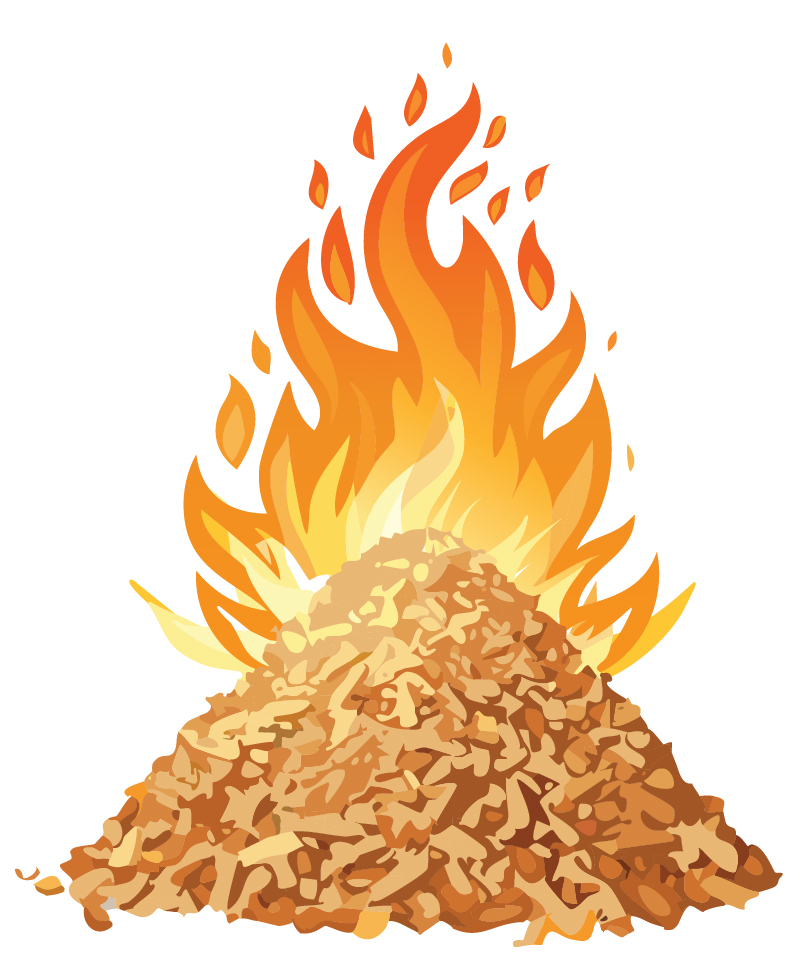 Four people were taken to hospital in the US on 12 September after an explosion at the Fiberon site in Stanly County, North Carolina. Initial inspections of the facility, which manufactures composite decking and railing products, suggest the incident was a result of a dust explosion, officials said. …Several people received treatment at the site for minor injuries with four Fiberon employees taken to a local hospital. Fire crews managed to bring a small fire under control and extinguished it within a couple of hours. In a statement, the Stanly County Fire Marshal’s Office said an investigation was already underway involving several agencies… According to local media, the explosion wasn’t the first fire-related incident at the site. In 2020, several silos and a dust collector caught fire which resulted in a number of small explosions. No employees were injured, however two firefighters were hurt while attempting to extinguish a fire the following day.
Four people were taken to hospital in the US on 12 September after an explosion at the Fiberon site in Stanly County, North Carolina. Initial inspections of the facility, which manufactures composite decking and railing products, suggest the incident was a result of a dust explosion, officials said. …Several people received treatment at the site for minor injuries with four Fiberon employees taken to a local hospital. Fire crews managed to bring a small fire under control and extinguished it within a couple of hours. In a statement, the Stanly County Fire Marshal’s Office said an investigation was already underway involving several agencies… According to local media, the explosion wasn’t the first fire-related incident at the site. In 2020, several silos and a dust collector caught fire which resulted in a number of small explosions. No employees were injured, however two firefighters were hurt while attempting to extinguish a fire the following day.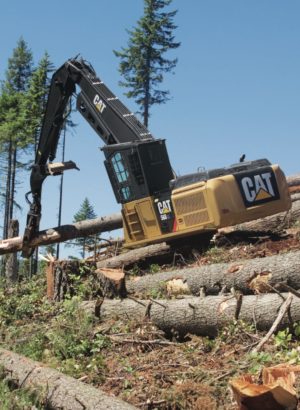 Mechanization has reduced fatal injuries for loggers in the northeastern United States but introduced new health risks linked to prolonged equipment use, according to interviews with 29 loggers across New York, Pennsylvania, and West Virginia. Participants reported concerns over weight gain, back pain, and cardiovascular risks from extended sedentary work, as well as mental stress from financial burdens and limited access to affordable health insurance. The findings come
Mechanization has reduced fatal injuries for loggers in the northeastern United States but introduced new health risks linked to prolonged equipment use, according to interviews with 29 loggers across New York, Pennsylvania, and West Virginia. Participants reported concerns over weight gain, back pain, and cardiovascular risks from extended sedentary work, as well as mental stress from financial burdens and limited access to affordable health insurance. The findings come 
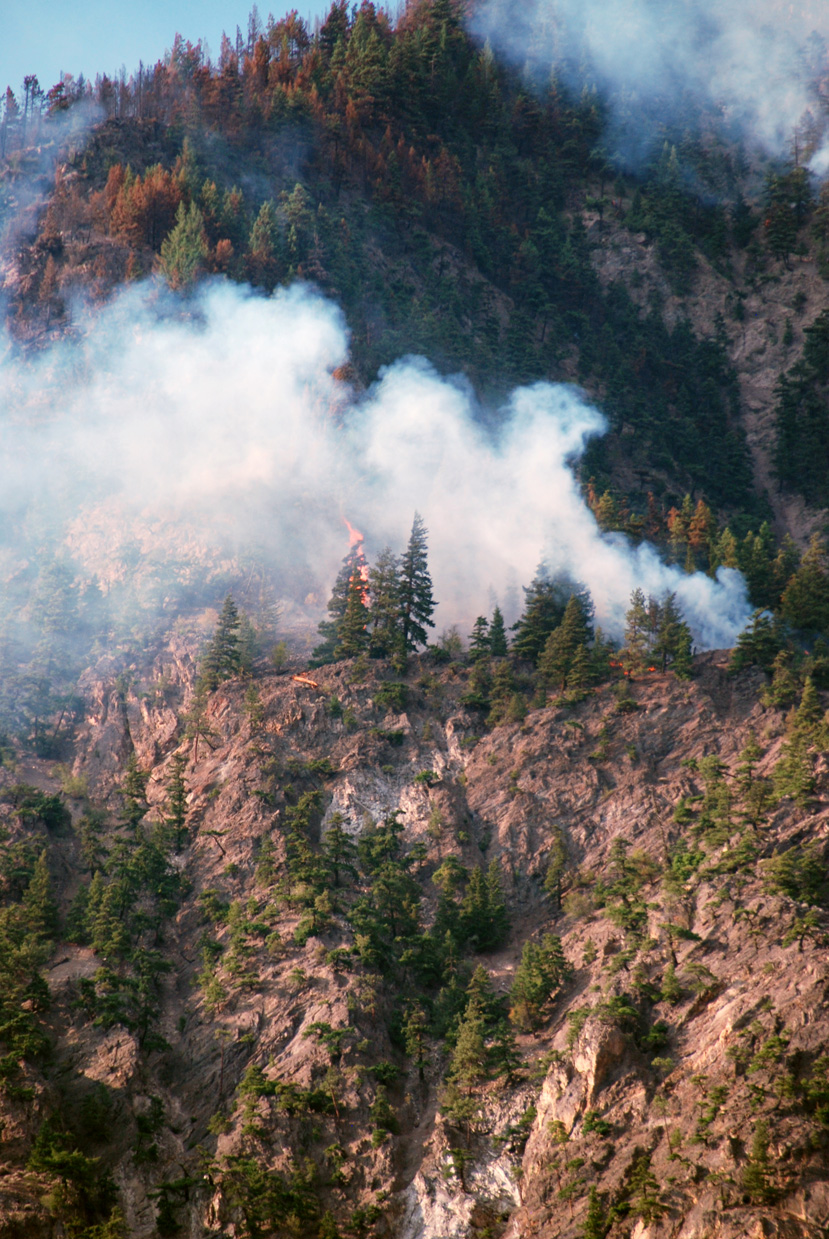 Choking smoke spewed by wildfires is far more dangerous than previously thought, a new study has found, with death tolls from short-term exposure to fine particulates underestimated by 93%. Researchers found that 535 people in Europe died on average each year between 2004 and 2022 as a result of breathing in the tiny toxic particles known as PM2.5 that are released when wildfires rage. Under standard methods, which assume PM2.5 from wildfires is as deadly as from other sources, such as traffic, they would have expected just 38 deaths a year. The study comes as wildfires ravage southern Europe, and new data from EU fire monitors shows that 895,000 hectares (2.2m acres) have burned so far in 2025, breaking records for this time of year. “Our paper shows the health impact for the same amount of particles is stronger for wildfire particles,” said Prof Cathryn Tonne, an environmental epidemiologist and co-author of the study.
Choking smoke spewed by wildfires is far more dangerous than previously thought, a new study has found, with death tolls from short-term exposure to fine particulates underestimated by 93%. Researchers found that 535 people in Europe died on average each year between 2004 and 2022 as a result of breathing in the tiny toxic particles known as PM2.5 that are released when wildfires rage. Under standard methods, which assume PM2.5 from wildfires is as deadly as from other sources, such as traffic, they would have expected just 38 deaths a year. The study comes as wildfires ravage southern Europe, and new data from EU fire monitors shows that 895,000 hectares (2.2m acres) have burned so far in 2025, breaking records for this time of year. “Our paper shows the health impact for the same amount of particles is stronger for wildfire particles,” said Prof Cathryn Tonne, an environmental epidemiologist and co-author of the study.